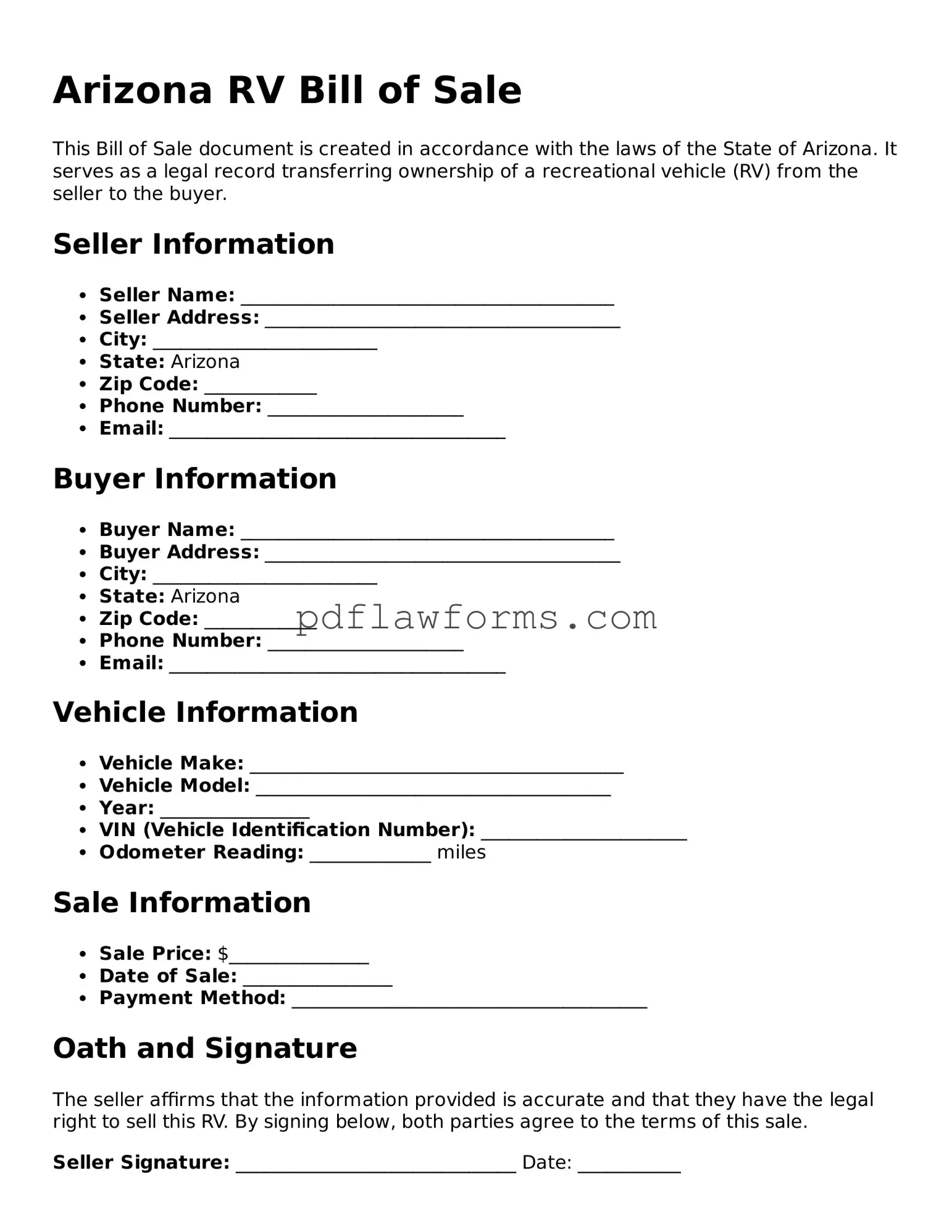RV Bill of Sale Form for the State of Arizona
The Arizona RV Bill of Sale form is a legal document that serves as proof of the sale and transfer of ownership of a recreational vehicle in the state of Arizona. This form outlines essential details such as the buyer's and seller's information, vehicle description, and sale price. Completing this form is crucial for both parties to ensure a smooth transaction and proper registration of the RV.
To fill out the form, please click the button below.
Make My Document Online

RV Bill of Sale Form for the State of Arizona
Make My Document Online
You’re halfway through — finish the form
Edit and complete RV Bill of Sale online, then download your file.
Make My Document Online
or
⇩ RV Bill of Sale PDF
